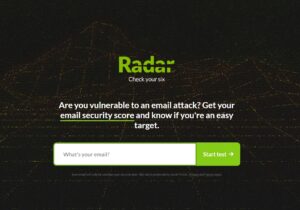In an urgent alert, the FBI has warned dental practices, particularly those specializing in oral and maxillofacial surgery, of a credible cybersecurity threat. As these medical practices increasingly rely on digital tools and online systems to manage patient information, they become attractive targets for cybercriminals. The sensitivity of the data handled by dental practices makes them prime candidates for phishing attacks, ransomware, and other cyber threats. It is imperative for dental professionals to adopt robust cybersecurity threat measures to protect their practices and patient information from potential breaches.
Understanding the Threat
Cybercriminals are constantly evolving their tactics to exploit vulnerabilities in digital systems. Dental practices, with their extensive patient records, financial data, and medical information, are lucrative targets. These attacks can lead to significant financial loss, reputational damage, and disruptions in patient care. The FBI’s alert highlights the importance of vigilance and proactive measures in defending against these threats.
Best Practices for Cybersecurity Threats
To mitigate the risk of cyberattacks, dental practices should implement the following best practices:
- Empower Your Team to Recognize and Avoid Phishing: Training staff to identify and avoid phishing emails is crucial. Phishing attempts often appear as legitimate emails but contain malicious links or attachments that can compromise systems. Regular training sessions and simulated phishing exercises can help staff stay alert.
- Require Strong Passwords: Ensuring that all employees use strong, unique passwords is a fundamental step in securing your systems. Passwords should be complex, incorporating a mix of letters, numbers, and special characters. Avoid using easily guessable passwords like “123456” or “password”.
- Implement Multi-Factor Authentication (MFA): MFA adds an extra layer of security by requiring users to provide two or more verification factors to gain access to their accounts. This could include something they know (a password), something they have (a security token), or something they are (a fingerprint or facial recognition).
- Update and Patch All Business Software: Keeping software up to date is critical. Software updates often include patches for security vulnerabilities that cybercriminals can exploit. Regularly check for updates and apply them promptly to all systems and applications.
- Collaborate with Your Service Provider: Your IT service provider can offer additional strategies and tools to enhance your cybersecurity posture. Regularly review your security measures with your provider and stay informed about new threats and technologies.
Why Dental Practices are Targeted
Dental practices are rich targets for cybercriminals due to the valuable data they hold. Patient health records contain personal, medical, and financial information that can be sold on the dark web or used for identity theft. Additionally, dental practices often lack the extensive IT infrastructure and security measures that larger healthcare institutions have, making them more vulnerable to attacks.
Consequences of a Cyberattack
The impact of a cyberattack on a dental practice can be devastating. Financial losses from ransomware payments, legal fees, and the cost of restoring systems can be substantial. Moreover, the loss of patient trust and damage to the practice’s reputation can have long-term consequences. In severe cases, practices may even face legal action if they are found to have failed in protecting patient data adequately.
Stay Informed and Vigilant
Remaining informed about the latest cybersecurity threats and trends is essential. The FBI’s warning underscores the need for constant vigilance and proactive measures. Dental professionals should regularly review their security protocols and stay updated on best practices in cybersecurity.
For more information on this trending threat and detailed guidelines on protecting your practice, visit the FBI’s cybersecurity resource page and consult with cybersecurity experts.
By taking these steps, dental practices can significantly reduce their risk of falling victim to cyberattacks, ensuring the security of their patient data and the continued trust of their patients.
Learn more about this important issue here.
For the full FBI alert, visit this link.
Killion Systems Cybersecurity page https://killionsystems.com/managed-it-services-in-nj/






